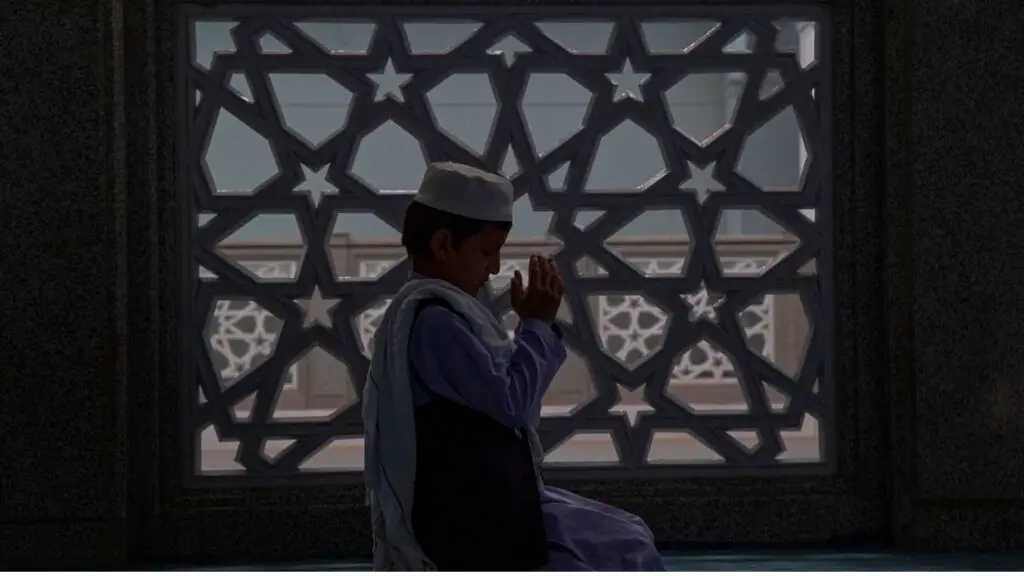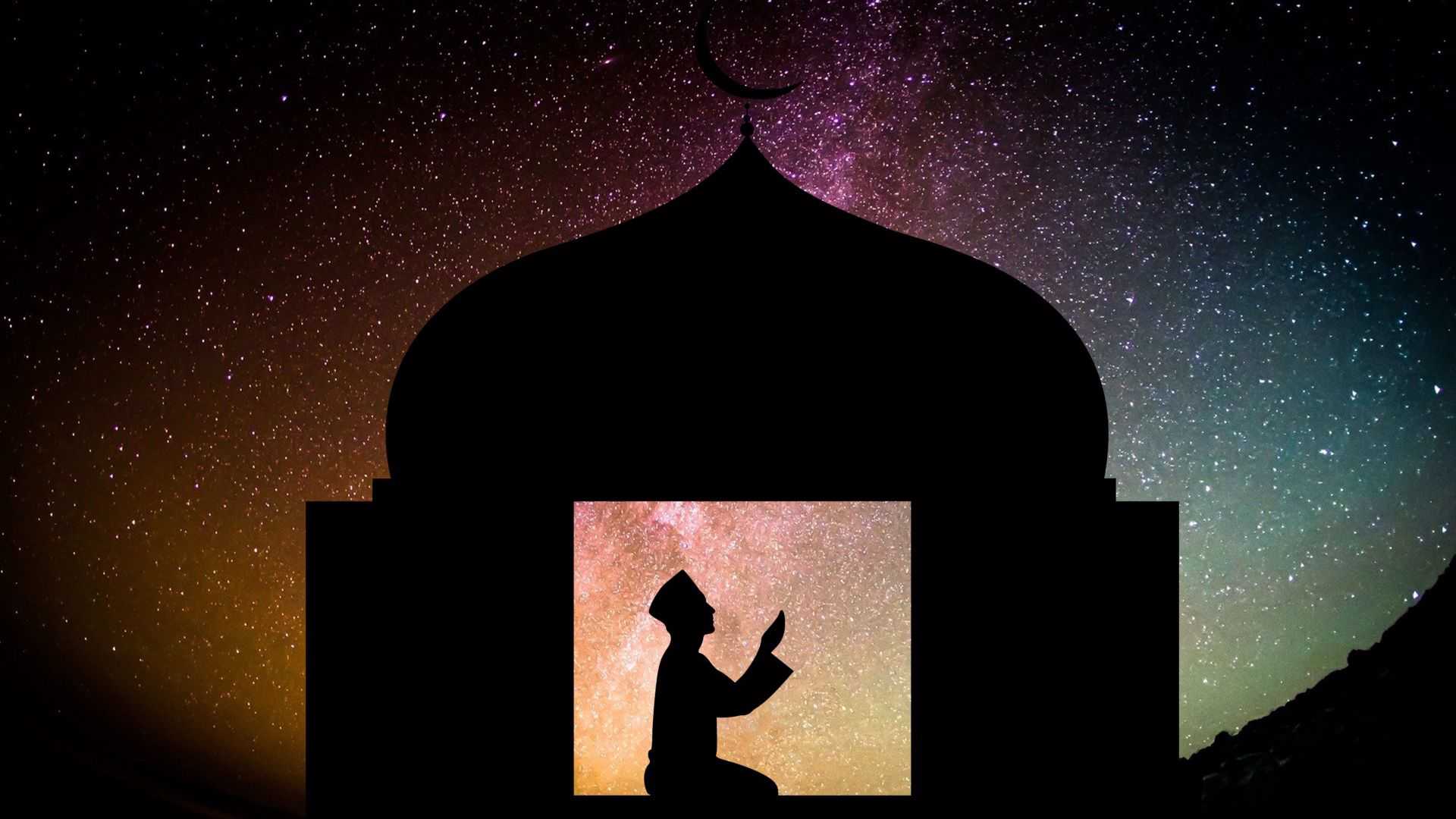Can you think of a time when your desire for something was so intense that you found yourself constantly praying to Allah in the hopes of obtaining it? We all find ourselves pleading with that one dua nearest to our hearts, whether it is for forgiveness, well-being, or the ease of your trials in this life and those of the dear ones around you. Because of his kindness, Allah has set aside a suitable time for us to perform dua to Him, which is Qiyam-ul-layl, or the night prayer. It is reported that the Prophet Muhammad (PBUH) said:
“The best prayer after the obligatory prayers is the night prayer.” (Sahih Muslim)
Qiyam-ul-layl literally translates to “stand during the night” in Arabic. It is an optional prayer that is performed between the Isha and the Fajr prayers (before dawn). However, the final third of the night, before daylight, is the best period. Any Muslim who forgoes sleep to stand in front of Allah (SWT) and pray to Him will receive enormous benefits and blessings for doing so. It is also more often referred to as “tahajjud,” “witr,” and “Taraweeh.”
The Meccan period saw the establishment of qiyam-ul-layl, which includes voluntary salah and other kinds of prayer like zikr. The Quran makes many references to the meaning of Qiyam-ul-layl:
“And some part of the night keep vigil for it as an additional prayer for you; maybe that your Lord will raise you up to a praised position.” – Al Israa (17:79).

Surah Muzzamil emphasizes the significance of Tahajjud in a Muslim’s life further:
“O you wrapped in garments (i.e. Prophet Muhammad saw)! Stand (to pray) all night, except a little. Half of it or a little less than that or a little more. And recite the Qur’aan (aloud) in a slow, (pleasant tone and) style. Verily, We shall send down to you a weighty Word (i.e. obligations, laws). Verily, the rising by night (for Tahajjud prayer) is very hard and most potent and good for governing oneself, and most suitable for (understanding) the Word (of Allaah)” – Al Muzzamil (73:1-6)
This brings to light the concept that Qiyam-ul-layl is one of the highly auspicious occasions for Muslims to worship their Creator and Lord. Qiyam was referred to by Hazrat Jibreel (AS) as “sharaf-al mumineen,” or the integrity of the believers. As a result, Qiyam offers the human race immense wonders and chances that are available to each and every one of us. Without our being aware of it, the night prayer and its benefits extend and influence our daily lives.
Also Read: Laylat-ul-Qadr (Shab-e-Qadr) The Night of Power’s Significance
Being a worldwide teacher for humanity was the Prophet Muhammad’s (PBUH) greatest test, and he aced it. His achievement did not come about suddenly. The Prophet (PBUH) was required to perform the night prayers, or Qiyam-ul-layl, throughout the initial stages of his prophethood (SWT). We must strengthen and develop our relationship with Allah (SWT) in all of the ways as our Prophet Muhammad (P.B.U.H) instructed through his Sunnah if we are to pursue growth and prosperity in our lives. Holy Prophet (PBUH) says:
“You should pray qiyaam al-layl, for it is the custom of the righteous who came before you and it brings you closer to your Lord, and expiates sins and prevents misdeeds.” – Al Tirmidhi (3549)
Because it takes us to exert more effort to earn His blessings and rewards by overcoming our desire to sleep and rising only to connect with Allah, Allah designated this specific time for prayer and worship (SWT). We develop discipline, and we hone our self-control and willpower by getting up for Qiyam. Muslims acquire purity and excellence through learning to combat their “nafs” and selfish cravings. As a result, Qiyam-ul-layl is the route that could take a believer to heaven and everything it entails:
“In Paradise there are apartments the outside of which can be seen from the inside and the inside of which can be seen from the outside.” A Bedouin stood up and said: “Who are they for, O Messenger of Allah?” He said: “They are for those who speak good words, feed others, fast regularly and pray to Allah at night when people are sleeping.” – Al Tirmidhi (1984)
Difference between Qiyam-al-layl and Tahajjud
Since prayer and other actions are included in qiyam al-layl, it is evident that it is more inclusive than tahajjud because it also covers prayer before and after sleeping. To be precise, Qiyam-al-layl is an umbrella term for night prayers/ worship.
Tahajjud, on the other hand, consists solely of prayer, and there are divergent views on it. First, according to the majority of fuqaha, it entails prayer at any hour of the night.
The second is that it comes after prayer at night. 2/232 of Al-Mawsoo’ah al-Fiqhiyyah.
Al-Qurtubi (may Allah have mercy on him) stated in his commentary on the verse (interpretation of the meaning): “And in some parts of the night (also) offer the Salaah (prayer) with it (i.e. recite the Quran in the prayer) as an additional prayer (Tahajjud optional prayer Nawâfil) for you (O Muhammad). It may be that your Lord will raise you to Maqâm Mahmûd (a station of praise and glory, i.e., the honour of intercession on the Day of Resurrection)” [al-Isra 17:79]:
Tahajjud derives from hujood, which is doing one thing and the inverse, therefore the word hajada might imply either he slept or he remained up late, which are diametrically opposed.
Tahajjud, which translates to “waking up after sleeping,” gained a word for prayer because it requires waking up. Tahajjud so refers to rising at night to pray. ‘Ilqimah, Al-Aswad, ‘Abd al-Rahman ibn al-Aswad, and others all provided this interpretation.
Al-Hajjaj ibn ‘Amr, the Companion of the Prophet (blessings and peace of Allah upon him), is reported to have said: Does one of you think that if he gets up and spends the entire night in prayer that he had prayed tahajjud? Rather tahajjud is praying after sleeping, then praying after sleeping, then praying after sleeping. This is how the Messenger of Allah (blessing and peace of Allah be upon him) prayed.
Read more Islamic Blogs or follow us on social media for Islamic reminders.






